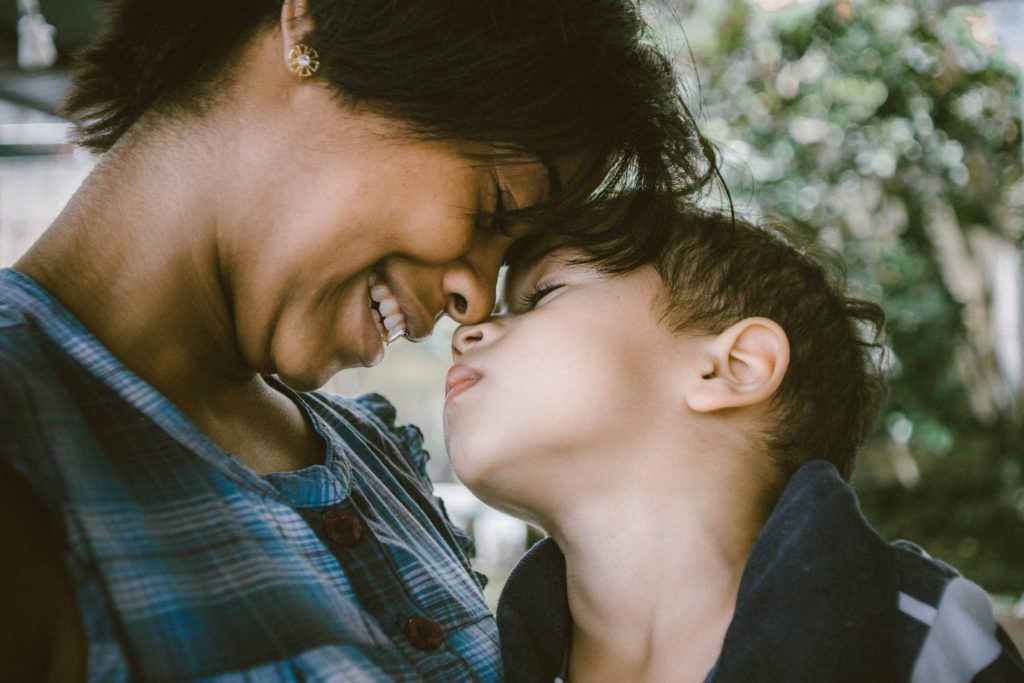Part II: How to talk to children about domestic violence

The blog below is the second in a two-part series. The first part, how domestic violence impacts children, can be found here.
According to the U.S. Advisory Board on Child Abuse and Neglect, domestic violence may be the single major precursor to child abuse in this country. Additionally, one in three high school girls reports experiencing dating violence before the age of 18.
Talking to children about domestic violence or dating violence may seem overwhelming or scary. Understandably, parents might feel that they do not know what to say or how to say it, but it is imperative to start the conversation. It is widely believed that open communication and conversations with children on hard topics such as domestic violence are huge protective factors in ensuring your child’s safety. But what exactly do we say?
How do I teach my child about safety?
One of the most important things you can teach your child is their right to safety. The first thing we encourage parents to teach their children is that it is not normal to feel scared in a relationship. Whether it be a family member, a friend or a dating partner, if you feel scared because of how that person is treating you, then it is not healthy. Could people hurt your feelings or make you mad? Absolutely. Even healthy relationships have moments of hurt, sadness or anger, but not fear! Teaching children that they have the right to feel safe in all relationships is an important part of preparing them to identify unsafe situations/relationships and to protect themselves.
Awareness regarding your child’s reaction to different people, and discussing times that you notice your child may feel uncomfortable around someone, allows for the opportunity to empower children to recognize their feelings and use those indicators for self-protection. We have the right to notice feeling uncomfortable and to use this feeling as a red flag for potential threats. Teaching, encouraging and empowering this self-awareness will help your child grow into an adult who can identify a need for healthy boundaries and protect themselves from unsafe people or situations.
At a young age, talking to your child about their body and safe touch are important stepping stones in education regarding healthy boundaries and safety. Age-appropriate conversations that teach your child how to identify parts of their body and who is allowed to touch their person should start as soon as possible. Knowing this will not only allow your child to identify unsafe touch, but will increase their likelihood of telling a safe adult if they are treated in an unsafe or abusive way. Understanding safe touch will not only protect your child from being sexually abused, but it will also teach them to identify physical abuse or aggressive, controlling behaviors. For example, teach your child that no one but a safe parent is allowed to touch their private parts, and also teach them that it is not okay for someone to hit them, grab them aggressively, push them or throw things at them.
What if they have witnessed domestic violence in our home?
If there has been violence in your home, we understand the concern and fear you feel regarding your children and their physical and emotional wellbeing. The reality is that children are significantly impacted by abuse. Talking about the effects of domestic violence on children can feel overwhelming and even hopeless at times, so it’s important to know that it is possible for a child to heal from experiences of domestic violence. Children are resilient and through the help of a supportive, healthy parent, we have hope in their ability to heal. Learn more about how domestic violence impacts children here.
Jordyn Lawson, MA LPC, is assistant director of clinical & professional services at Genesis Women’s Shelter & Support.
